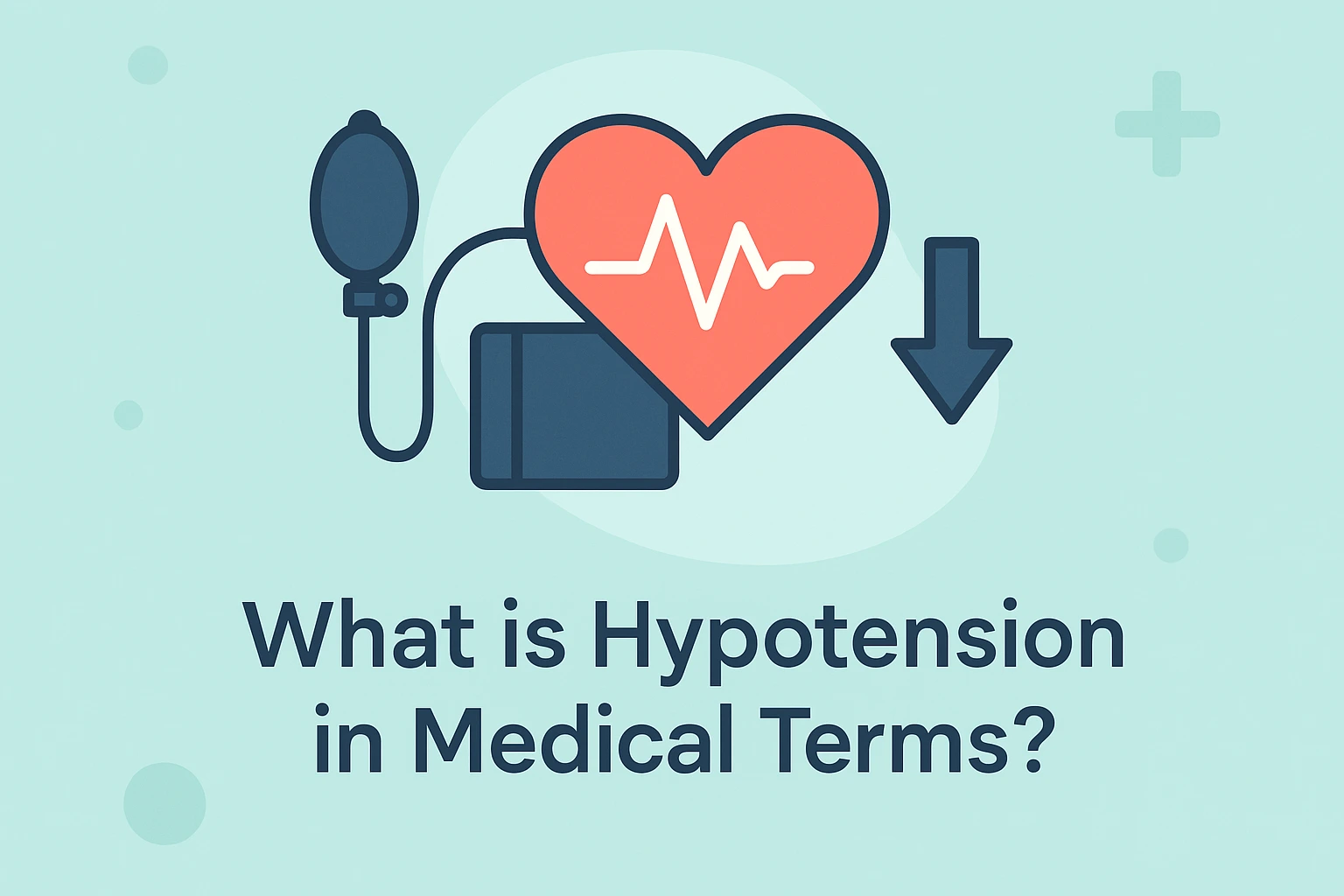Hypotension, commonly known as low blood pressure, is a condition where a person’s blood pressure reading is consistently lower than the normal range. A typical blood pressure reading is around 120/80 mmHg, and hypotension is generally defined as a reading lower than 90/60 mmHg. While low blood pressure can be a sign of good health for some, in other cases, it can lead to symptoms such as dizziness, fainting, and shock, especially when the body doesn’t receive enough blood to function properly.
There are several types of hypotension:
- Orthostatic Hypotension: A sudden drop in blood pressure when standing up from a sitting or lying position, often causing dizziness or lightheadedness.
- Neurally Mediated Hypotension: Occurs when the body overreacts to triggers like standing up for long periods, causing a temporary drop in blood pressure.
- Chronic Hypotension: A long-term condition where blood pressure remains consistently low and can affect overall health.
- Shock-Induced Hypotension: A severe and life-threatening drop in blood pressure caused by severe blood loss, infection, or heart failure, which can lead to organ damage.
Common causes of hypotension include dehydration, heart problems (such as bradycardia, heart valve problems, or heart attack), endocrine issues like thyroid problems, and severe blood loss due to trauma or internal bleeding. Certain medications and infections can also trigger a drop in blood pressure.
For many people, hypotension doesn’t cause significant health problems. However, if blood pressure drops too low or leads to symptoms like fainting, fatigue, or confusion, medical intervention may be required. Treatment typically focuses on addressing the underlying cause and may include medications, lifestyle changes, or increased fluid intake to maintain normal blood pressure levels.
If you experience frequent dizziness or fainting spells, it’s important to seek medical attention to determine the cause and get appropriate treatment.

Symptoms of Hypotension
Symptoms of hypotension include: various signs that indicate low blood pressure.
- Dizziness or light-headedness
- Fainting or near-fainting
- Blurred vision
- Nausea
- Fatigue
- Confusion
Causes of Hypotension
Common causes and risk factors for hypotension include: mechanisms like reduced blood flow, fluid loss, or inner ear issues.
- Dehydration due to heat or fasting
- Prolonged bed rest or inactivity
- Severe infection (septicemia)
- Heart problems
- Hormonal imbalances
- Medications that lower blood pressure
When to See a Doctor Hypotension?
Seek medical advice for possible hypotension if: you experience fainting, chest pain, or confusion. These symptoms can indicate a more serious condition requiring immediate attention.
Related Terms of Hypotension
- Myocardial Infarction
- Stroke
FAQs for Hypotension
When should I go to the ER for hypotension?
If you experience fainting, chest pain, or confusion, seek emergency care immediately.
How can heat and dehydration affect blood pressure?
In hot conditions, dehydration can lead to low blood pressure, particularly during fasting or long-haul travel.
What are some ways to reduce the risk of hypotension?
Staying hydrated and avoiding sudden position changes can help manage blood pressure levels.
